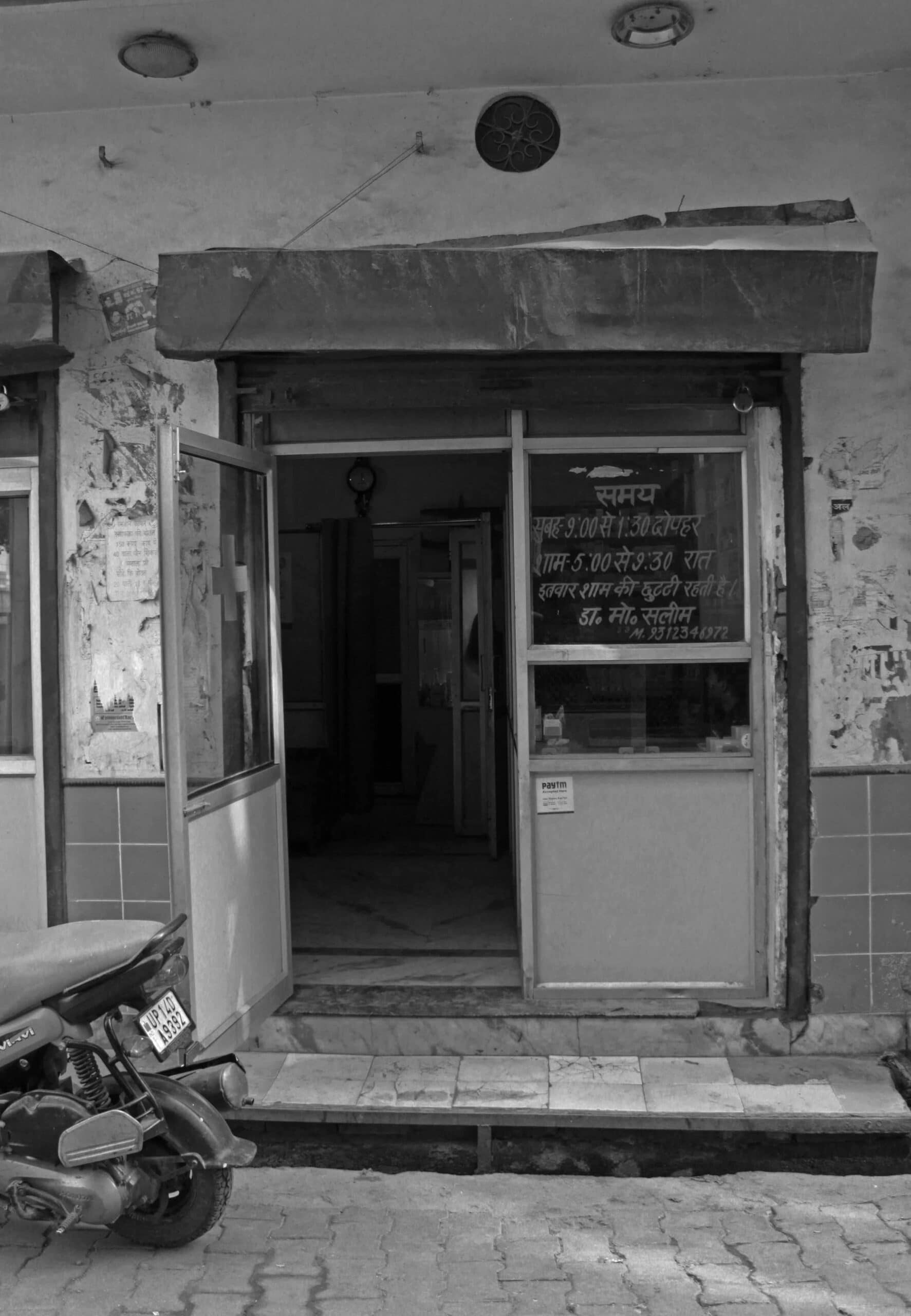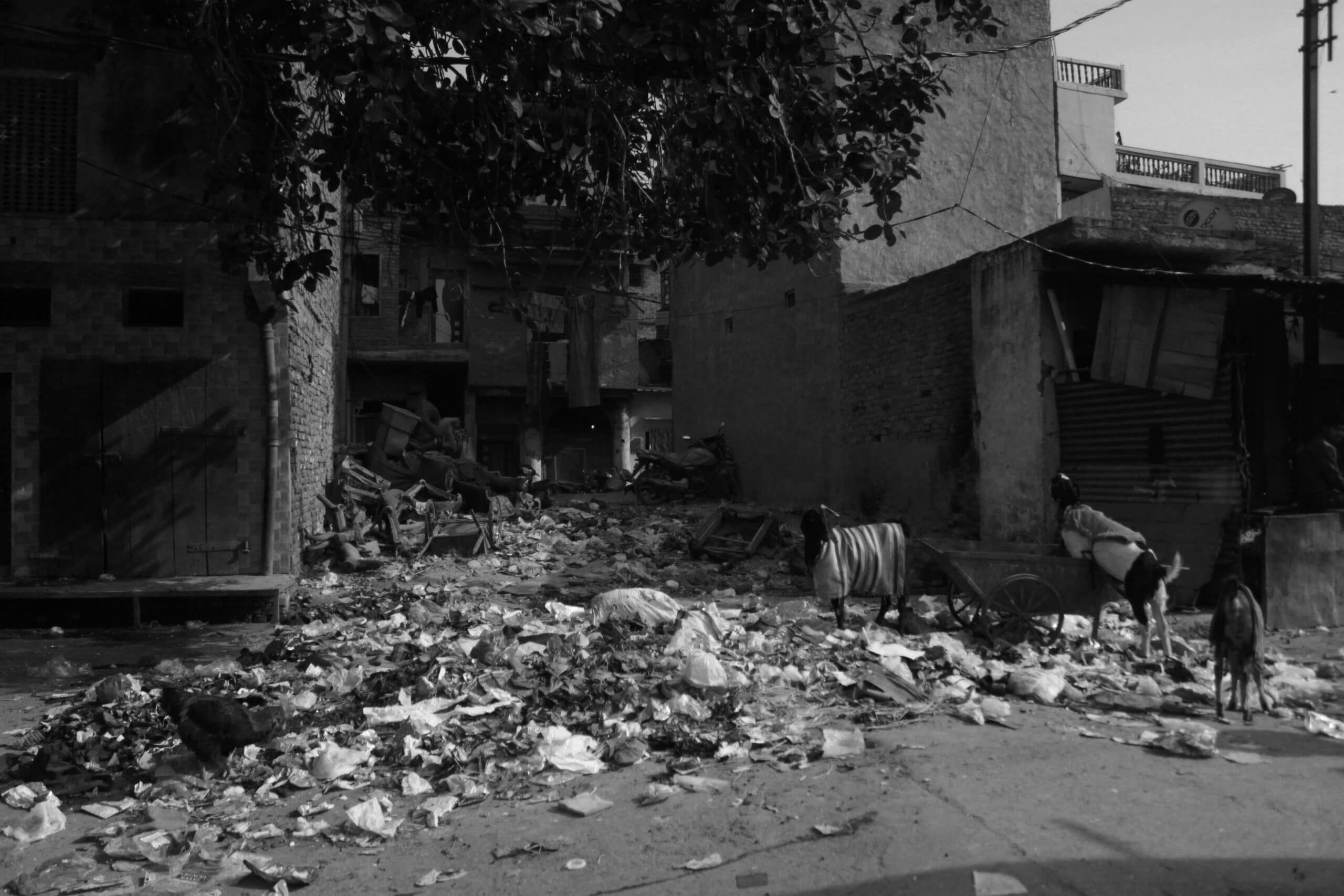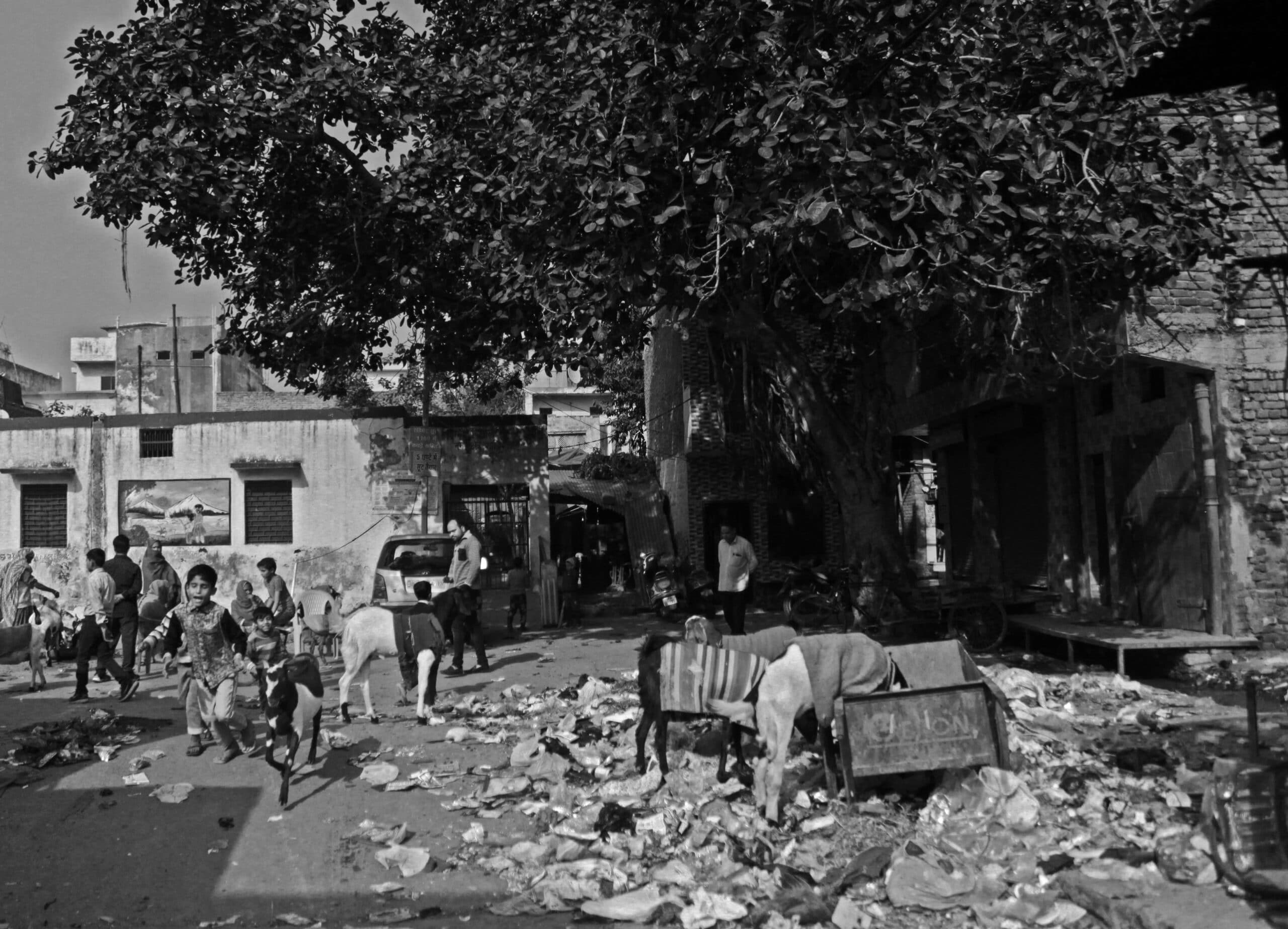Just a few months before Uttar Pradesh enters the state assembly polls, the governing Bharatiya Janata Party has left no stone unturned with its posters claiming that Uttar Pradesh has prospered under the regime of chief minister Yogi Adityanath. Contrary to such claims, residents of Kaila Bhatta, a village in Madhopura, situated in Ghaziabad, are living under substandard hygienic conditions. For them, basic facilities like sanitation are not available. Amongst several other issues, the residents of Kaila Bhatta are most concerned about the compromised sanitation outside the premises of the M.B primary school, the only school in the locality.

Right outside the gate of the school, there is a pile of garbage rotting and still drainage water, making it a perfect breeding ground for mosquitoes to breed.
“Children come to study here and have to walk past the piles of stinking garbage. This is the biggest menace of this area and has had no solution for ages”, said Rizwan, a local resident.
Ghaziabad Municipal Corporation, also known as Nagar Nigam, has been blamed in the past for not being able to dispose of garbage properly, leading to unhygienic conditions. It took four innocent lives for the Nagar Nigam to realize that the locality’s open-drain needed to be covered.
According to the residents, the garbage collection vehicle by the Nigam comes once a month. They claim that the visits used to be more frequent before the pandemic. Islam Nagar and Chaman Colony are a few of the colonies which are worst affected by the abysmal hygiene situation in the area.

Dr Salim who has a small clinic in this area, explains several health hazards that are caused by the compromised sanitation of the village.
“There is a general slackness when it comes to health here. People are unaware of how the garbage lying in the open can affect their health, they have stomach aches and other issues not realising that it is connected to the prevailing unsanitary situation in the area,” he said.
He also points out that most of the people living in the area are daily wage labourers, who cannot afford to spend on healthcare. The closest government hospital is the MGM hospital, which is always full when it comes to availability of beds.
“People go to these hospitals when there is a severe health issue. The small issues, like coughing, fever are mostly ignored or brought to me,” Dr Salim said.
The garbage dump also has stagnant water that has attracted a swarm of mosquitoes and flies in the area surrounding it.
According to Dr Salim, the problem needs to be dealt with at an authoritative level. The people living in the area have taken up this issue several times with the ward member but are not finding any respite.
However, the ward member responsible for ensuring cleanliness in Islam Nagar and other adjoining colonies says that he has spoken about this issue several times with the corporation. “It is sheer laziness. Whenever I raise my voice, some cleaning happens, and then it is back to square one,” the ward member said.

Meanwhile, Tabassum, who lost her child to the open drain four years ago, thinks garbage is still a problem but is assured by the fact that there is a barricade around the drain. Tabassum says that even though the vehicle to collect garbage doesn’t come, she gets a receipt for Rs 600 from the corporation for waste management.
“I don’t pay the amount because I am not getting the services,” she said.

Kaila Bhatta is not the only area in this situation; the situation is similar in Dasna Gate, which is around 2 km from Kaila Bhatta. Like in Kaila Bhatta, there is a whole garbage dump in front of the primary school in the area. The Pakki Sarai area in Dasna Gate is dealing with a broken sewage system and a garbage dump which has not been cleaned for a month now.
“This has become worse post-pandemic. Earlier, the cleaning used to happen more often,” a resident said.

Both the areas, Kaila Bhatta and Dasna Gate, are dominated by Muslims and Dalits.
Some residents of the area hint at discrimination by the Municipal corporation as the adjoining colonies, which are dominated by the upper-caste, are cleaner. “The garbage is picked up more often from these areas. We have lived harmoniously for generations but couldn’t ignore the fact that they have a cleaner space compared to us,” one of the residents said.

Ghaziabad as a city has been unable to deal with its waste management. The city, which is getting attention for its rapid construction of townships, has been unable to figure out a solution for basic sanitation.
In a report that came out in November, the Hindustan Times pointed out that garbage burning is the biggest contributor leading to declining air quality in Ghaziabad. There have been 256 recorded instances of garbage burning, which has further polluted the air in this area.
However, the people living in both areas are certain of one fact: as polling day inches closer, they will have cleaner space for some time.
Also Read: Lakhimpur Kheri incident: “Planned Conspiracy with intent to cause harm”
















